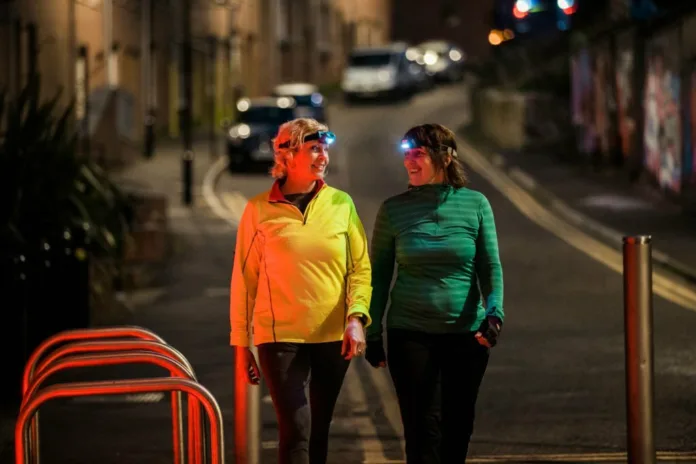Walking is a simple and effective way to improve your overall health and well-being. It’s a low-impact exercise that’s easy on your joints, and it can be done just about anywhere, at any time of day.
One of the best times to walk is after dinner. Taking a walk after eating can help improve your digestion, lower your blood sugar, and reduce your risk of chronic diseases. It can also boost your mood and energy levels, and help you sleep better at night.
Here are some of the specific health benefits of walking after dinner:
Improves digestion
Walking after dinner can help stimulate your digestive system and move food through your body more quickly. This can help reduce bloating, gas, and other digestive problems.
Helps with weight loss
Walking is a great way to burn calories and promote weight loss. Walking for just 30 minutes after dinner can help you burn an extra 100-200 calories.
Reduces the risk of chronic diseases
Walking regularly can help reduce your risk of developing chronic diseases such as heart disease, stroke, type 2 diabetes, and some types of cancer.
Improves sleep quality
Walking can help improve your sleep quality by reducing stress and anxiety levels. It can also help you fall asleep faster and stay asleep longer.
Boosts mood and energy levels
Walking releases endorphins, which have mood-boosting and energy-increasing effects. Walking after dinner can help you feel more refreshed and energized, and it can also help improve your overall mood.
Strengthens bones and muscles
Walking is a weight-bearing exercise, which means that it helps to strengthen your bones and muscles. This is especially important as you get older, as it can help to prevent osteoporosis and other bone-related problems.
Reduces stress and anxiety
Walking is a great way to relieve stress and anxiety. It can help to clear your head and improve your mood. Walking after dinner can help you relax and unwind after a long day.
Improves cardiovascular health
Walking is a good form of cardiovascular exercise, which means that it helps to strengthen your heart and lungs. Walking regularly can help reduce your risk of developing heart disease, stroke, and other cardiovascular problems.
Boosts the immune system
Walking can help to boost your immune system and make you less susceptible to illness. This is because walking helps to increase the production of white blood cells, which are responsible for fighting infection.
Increases longevity
Studies have shown that people who walk regularly live longer than those who don’t. Walking can help to reduce your risk of developing chronic diseases and improve your overall health and well-being.
How to get started
If you’re new to walking, start slowly and gradually increase the amount of time you walk each day. Aim for at least 30 minutes of brisk walking most days of the week.
You can break up your walk into shorter sessions throughout the day, if that’s easier for you. For example, you could walk for 10 minutes after breakfast, 10 minutes after lunch, and 10 minutes after dinner.
If you live in a cold climate, you can walk indoors on a treadmill or at a local track.

Here are some tips for making the most of your walks:
Wear comfortable shoes and clothing.
Start slowly and gradually increase the amount of time you walk each day.
Walk at a brisk pace.
Drink plenty of water before, during, and after your walk.
Listen to music or podcasts to make your walk more enjoyable.
Walk with a friend or family member for motivation and companionship.
Conclusion
Walking after dinner is a great way to improve your overall health and well-being. It’s a simple and effective way to improve your digestion, lower your blood sugar, reduce your risk of chronic diseases, boost your mood and energy levels, and sleep better at night.
If you’re new to walking, start slowly and gradually increase the amount of time you walk each day. Aim for at least 30 minutes of brisk walking most days of the week.




